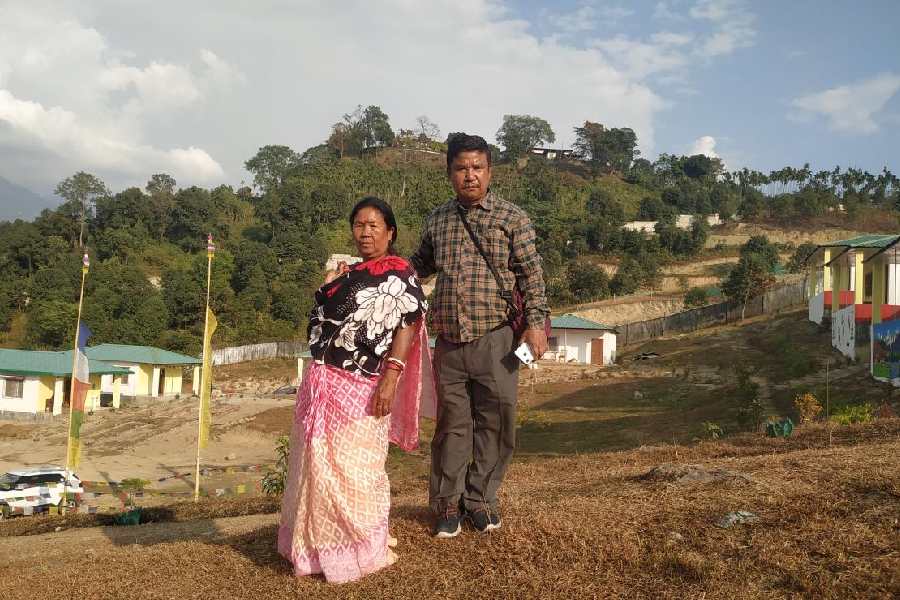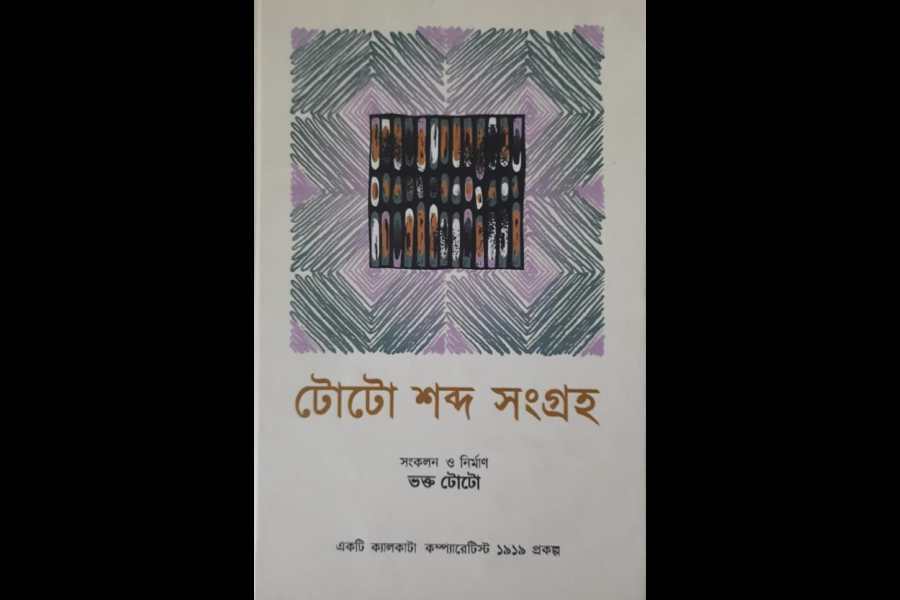
When a language dies... Toto Dictionary published
Don't Miss
The dictionary, Toto Shabda Sangraha, was published recently by Bhasha Sansad with help from Calcutta Comparatists 1919, an organisation which, among other things, works towards preserving languages
Paromita Sen, TT, 17.12.23 : Bhakta Toto is no one’s idea of an academic. His day job deals with numbers — he is the branch manager of a regional rural bank, which he joined nearly 40 years ago as junior clerk. The only time he took the higher secondary exam, he was unsuccessful. Yet this man has spent more than two decades of his life compiling a dictionary of Toto terms and another decade trying to get it published.
 |
| WORD CATCHER: Bhakta Toto with wife Bibika in Alipurduar’s Totopara: Sourced by the Telegraph |
The dictionary, Toto Shabda Sangraha, was published recently by Bhasha Sansad with help from Calcutta Comparatists 1919, an organisation which, among other things, works towards preserving languages.
In Alipurduar’s Totopara — in north Bengal — Toto is not only the surname of every member of the Toto tribe native to the place but also the name of the language they speak.
Bhakta was one of the earliest Totos to join a boarding school and only the second from that tribe to have cleared the Madhyamik exam. When his children were growing up, he realised there was a risk of the Toto language gradually losing out as the newer generations picked up Bengali, English, Hindi and Nepali to fit into the mainstream. “The Totos have already adopted so many words from Bengali and Nepali. I was afraid that with time the Toto terms for these words would be lost,” says Bhakta. So he started work on a Toto dictionary.
While Bhakta is multilingual, his wife Bibika speaks only Toto. “Baba would often consult Ma,” says their daughter Sanchita, who works in a software company in Calcutta.
Bhakta’s workday normally lasts from 10am to 6.30pm. Sanchita remembers her father busy working on the dictionary through holidays and in the evenings after work.
The Toto Shabda Sangraha is an 88-page book that has the meanings of 1,200 Toto words in Bengali and English. Both Toto and Bengali words are written in the Bengali script because the Toto script, developed by Dhaniram Toto in 2015, is yet to be learnt by all the members of the tribe. That will take a while; it took nearly half a century for the Olchiki script of the Santal language to become popular.
Of course, the Totos are fewer in number than the Santals, only 1,640 at last count (2011 census). According to Dhaniram, his people moved away from the cold and harsh Mongolia two centuries ago in search of a more congenial place. They travelled through China and Bhutan and reached India, where they settled down at Salsalabari in Alipurduar. The locals called their settlement Totopara and the name stuck.
How many words make up a dictionary? The pocket version of the Oxford Learner’s Dictionary contains 38,000. Chalantika, the Bengali dictionary compiled by Rajsekhar Basu in the early 20th century, contains nearly 30,000. And the Santali-Bengali-English dictionary published by the Pashchim Banga Santali Academy in 2017 contains 24,550 words. A Santali-Odia-English dictionary that was published the very same month as the Toto dictionary is in three volumes and has 1,500 pages.
Dictionaries tend to be fat books, and the words usually flow in alphabetical order. The Toto Shabda Sangraha bucks both these trends.
The words in this slim volume are arranged topicwise: numbers, pronouns, parts of the human body, relationships, colours, clothes, food and drink, plants, animals and their calls, musical instruments, sports, insects and so on. It shares a similarity with the two Indian language dictionaries too — both the first Bengali dictionary and the first Santal one by P.O. Bodding were published in a foreign script, the Roman script.
“The Toto Shabda Sangraha will work as an archive and ensure we do not lose the language,” says Mrinmoy Pramanick, assistant professor in the department of comparative Indian languages and literature at the University of Calcutta and founder-president of Calcutta Comparatists 1919. Languages spoken by a small number of people are always at great risk of being lost. The most recent to be lost was one of the Great Andamanese languages, Aka-Cari. Its last speaker, Licho, died in 2020. Another language of the Great Andamanese family, Aka-Bo, lost its last speaker in 2010.
When a language is lost, the great wisdom contained in it is lost too. After all, these tribes pass on their stories orally. The Totos, too, have a rich oral tradition. But are the 1,200 words recorded in the dictionary all that the Toto language has? No, says Bhakta Toto, there are about 3,000 words spoken in Toto and he has begun compiling part two of his dictionary.
He wants to ensure that the Toto language lives on long after him.


.png)

0 Response to "When a language dies... Toto Dictionary published "
Post a Comment
Disclaimer Note:
The views expressed in the articles published here are solely those of the author and do not necessarily reflect the official policy, position, or perspective of Kalimpong News or KalimNews. Kalimpong News and KalimNews disclaim all liability for the published or posted articles, news, and information and assume no responsibility for the accuracy or validity of the content.
Kalimpong News is a non-profit online news platform managed by KalimNews and operated under the Kalimpong Press Club.
Comment Policy:
We encourage respectful and constructive discussions. Please ensure decency while commenting and register with your email ID to participate.
Note: only a member of this blog may post a comment.